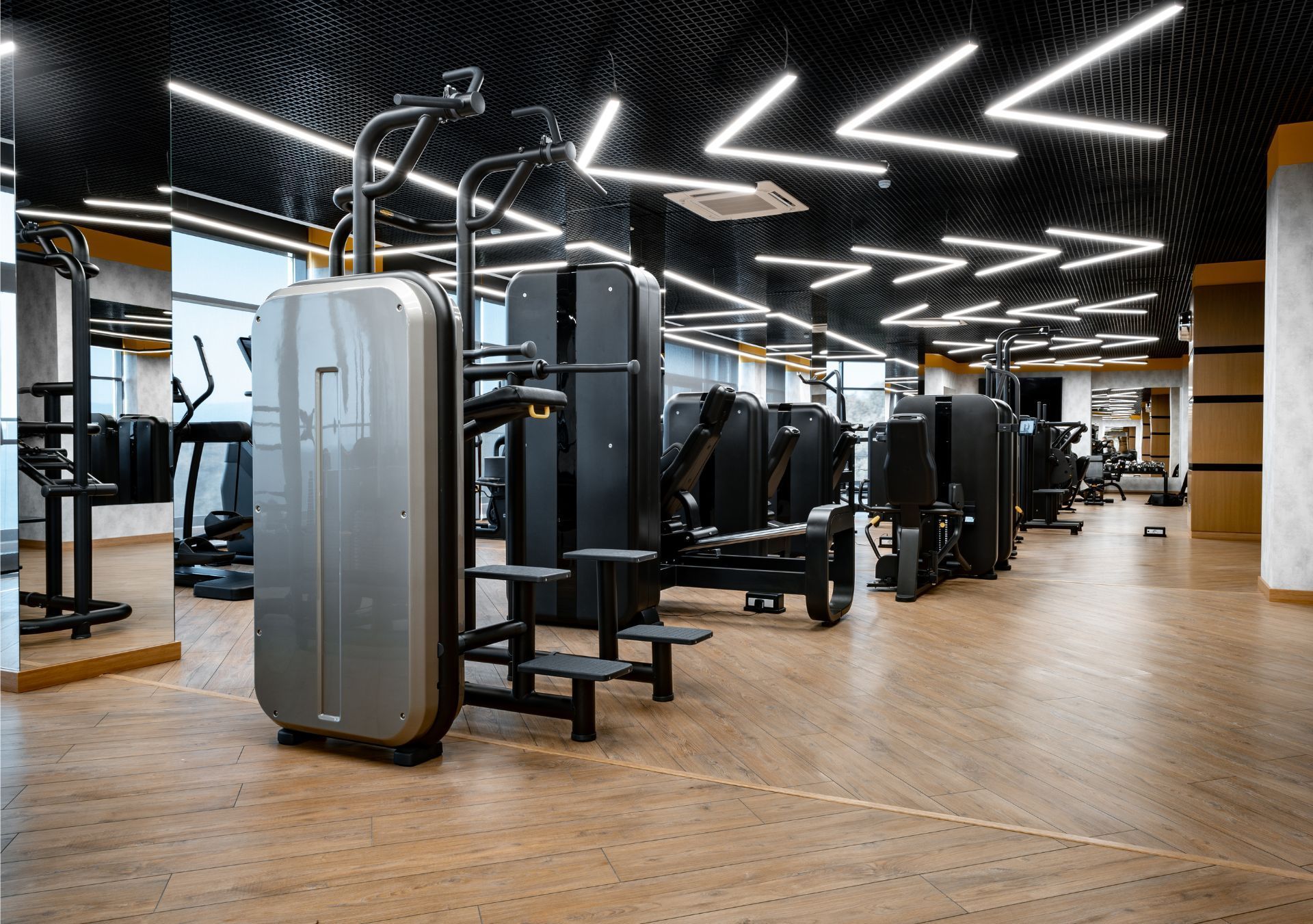
Most Common Business Policies
Index
Understanding the Importance of Fitness Center Insurance in Arizona
Types of Insurance Coverage for Arizona Fitness Centers
Factors Affecting Insurance Costs for Arizona Fitness Centers
Legal Requirements for Fitness Center Insurance in Arizona
How to Choose the Right Insurance Provider for Your Arizona Fitness Center
Tips for Reducing Insurance Costs Without Sacrificing Coverage
Common Claims and How to Prevent Them in Arizona Fitness Centers
Conclusion: Protecting Your Arizona Fitness Center with the Right Insurance
Contact Us
Running a fitness center in Arizona can be a rewarding venture, combining a passion for health and wellness with a thriving business opportunity. However, like any business, fitness centers face unique risks that require careful management. One of the most critical aspects of protecting your gym or fitness facility is securing the right insurance coverage. This comprehensive guide will walk you through everything you need to know about Arizona fitness center insurance, helping you safeguard your business, employees, and clients.
Understanding the Importance of Fitness Center Insurance in Arizona
Fitness centers in Arizona operate in a dynamic environment where liability risks are high due to the physical nature of the services offered. From personal training sessions to group classes and equipment usage, there are multiple opportunities for accidents and injuries. Insurance is not just a legal formality but a crucial safety net that protects your financial stability and reputation.
According to the Arizona Department of Health Services, the state has seen a steady increase in fitness facility memberships over the past decade. With more people engaging in physical activities, the likelihood of claims related to injuries or property damage also rises. Without proper insurance, a single lawsuit could potentially bankrupt a small or medium-sized gym.
Why Fitness Center Insurance is Essential
Fitness center insurance helps cover legal fees, medical expenses, and property repairs if an incident occurs on your premises. It also provides peace of mind, allowing you to focus on growing your business rather than worrying about unforeseen liabilities. Additionally, many landlords and business partners require proof of insurance before signing contracts, making it a vital part of your operational compliance.
Moreover, fitness center insurance can also extend to cover additional aspects of your business, such as equipment breakdown and business interruption. In a state like Arizona, where the summer heat can lead to equipment malfunctions, having coverage for these scenarios can save you from significant losses. Furthermore, specialized policies can offer protection against cyber threats, which are increasingly relevant as more fitness centers adopt digital membership systems and online class offerings. This comprehensive approach to insurance not only safeguards your assets but also enhances your credibility in the competitive fitness market.
In addition to the financial protection that insurance provides, it can also enhance your marketing efforts. Many potential clients are more likely to choose a fitness center that can demonstrate a commitment to safety and professionalism. By highlighting your insurance coverage in promotional materials, you can build trust with prospective members, reassuring them that their health and safety are your top priorities. This proactive stance can lead to increased membership retention and referrals, ultimately contributing to the long-term success of your fitness center.

Types of Insurance Coverage for Arizona Fitness Centers
Choosing the right insurance coverage involves understanding the specific risks your fitness center faces. Here are the primary types of insurance policies that Arizona fitness centers typically need:
1. General Liability Insurance
General liability insurance is the cornerstone of any fitness center’s insurance portfolio. It covers bodily injury and property damage claims arising from accidents on your premises. For example, if a member slips on a wet floor or injures themselves using gym equipment, this policy helps cover medical costs and legal fees.
In Arizona, where heat and dust can contribute to slippery or hazardous conditions, maintaining safe premises is crucial. General liability insurance ensures that even if you take all precautions, you are protected against unexpected incidents. Additionally, this coverage can extend to incidents that occur off-site, such as during fitness classes held in parks or community events, providing a broader safety net for your business.
2. Professional Liability Insurance (Errors & Omissions)
Also known as malpractice insurance, professional liability covers claims related to negligence or mistakes in the services you provide. For fitness centers, this is particularly important for personal trainers and instructors who design workout plans or provide health advice.
If a client alleges that your guidance caused injury or worsened a condition, professional liability insurance helps cover defense costs and settlements. This coverage is essential given the personalized nature of fitness training and the potential for disputes. Furthermore, as fitness trends evolve and new methodologies emerge, trainers may need to adapt their approaches, which can introduce new risks. Professional liability insurance provides peace of mind, allowing fitness professionals to focus on their clients without the constant worry of potential legal repercussions.
3. Property Insurance
Property insurance protects your physical assets, including the building (if owned), equipment, furniture, and inventory. Arizona’s climate poses risks such as dust storms and extreme heat, which can damage equipment or the facility itself.
This insurance also covers losses due to fire, theft, vandalism, and natural disasters. For gyms with expensive machines and technology, property insurance is a must-have to avoid costly replacements. Additionally, many fitness centers invest in specialized equipment such as treadmills, weights, and yoga props, which can be a significant financial commitment. Having comprehensive property insurance ensures that your investment is safeguarded against unforeseen events, allowing you to quickly recover and resume operations.
4. Workers’ Compensation Insurance
Arizona law requires businesses with employees to carry workers’ compensation insurance. This coverage provides medical benefits and wage replacement to employees injured on the job. Fitness centers often have staff working with heavy equipment or engaging in physically demanding tasks, increasing the risk of workplace injuries.
Workers’ compensation insurance not only complies with state regulations but also helps maintain a safe and supportive work environment. Furthermore, this coverage can foster employee morale, as staff members feel secure knowing they are protected in the event of an accident. In an industry where physical activity is a daily requirement, ensuring that your employees are covered can lead to a more engaged and productive workforce.
5. Business Interruption Insurance
Unexpected events such as fires, floods, or pandemics can force your fitness center to close temporarily. Business interruption insurance compensates for lost income and ongoing expenses during these periods, helping your business stay afloat until operations resume.
Given the recent impact of COVID-19 on gyms worldwide, this coverage has become increasingly relevant for fitness centers in Arizona. Additionally, this type of insurance can cover expenses related to relocating your operations temporarily, such as renting a different space or purchasing equipment to continue serving your clients. By having this safety net, fitness center owners can navigate unexpected disruptions with greater confidence and stability.
6. Cyber Liability Insurance
Many fitness centers collect sensitive client information, including payment details and health data. Cyber liability insurance protects against data breaches, hacking, and other cyber threats that could compromise your business and customer trust.
With the rise of digital memberships and online class bookings, this coverage is an important consideration for modern fitness centers. As technology continues to advance, the risks associated with cyber threats are also evolving, making it essential for fitness centers to stay ahead of potential vulnerabilities. Cyber liability insurance not only helps cover the costs associated with data breaches, such as legal fees and notification expenses, but it also aids in rebuilding trust with clients after an incident, ensuring that your reputation remains intact in the competitive fitness market.
Factors Affecting Insurance Costs for Arizona Fitness Centers
Insurance premiums for fitness centers vary widely based on several factors. Understanding these can help you manage costs while ensuring adequate coverage.
Location and Facility Size
Gyms located in urban areas like Phoenix or Tucson may face higher premiums due to increased foot traffic and liability risks. Additionally, larger facilities with more equipment and members generally require higher coverage limits, increasing costs. The demographics of the area also play a role; for instance, a fitness center situated in a neighborhood with a higher population of active individuals may attract more members, but it also means a greater potential for accidents and claims. This interplay between location and facility size can significantly influence the overall insurance landscape for fitness centers.
Type of Services Offered
Fitness centers offering specialized services such as boxing, CrossFit, or personal training often pay more for insurance due to the higher risk of injury. Facilities that include amenities like swimming pools or climbing walls may also face increased premiums. Furthermore, the trend towards offering unique classes, such as aerial yoga or high-intensity interval training (HIIT), can introduce additional risks that insurers must consider. As the fitness industry evolves and new trends emerge, fitness centers must stay informed about how these changes can impact their insurance needs and costs.
Claims History
Insurance providers assess your claims history to determine risk. A fitness center with a history of frequent or severe claims may face higher premiums or difficulty obtaining coverage. Moreover, even a single significant claim can lead to long-term repercussions on your insurance profile, potentially affecting your rates for years to come. This makes it essential for gym owners to not only focus on risk management but also to foster a culture of safety among staff and members, thereby minimizing the chances of incidents that could lead to claims.
Safety Measures and Staff Training
Implementing rigorous safety protocols, maintaining equipment, and providing staff training can reduce the likelihood of accidents. Insurers often offer discounts to gyms that demonstrate strong risk management practices. Regular safety audits, emergency response drills, and ongoing education for trainers and staff can significantly enhance the safety environment. Additionally, creating a robust member orientation program that emphasizes safety practices can further mitigate risks, making your facility more attractive to insurers.
Coverage Limits and Deductibles
Higher coverage limits provide more protection but increase premiums. Similarly, choosing a higher deductible can lower upfront costs but means more out-of-pocket expenses in the event of a claim. Balancing these factors is key to an affordable and effective insurance plan. It's also important to regularly review and adjust your coverage as your business grows or changes. For instance, if you expand your services or increase your member base, reassessing your coverage limits and deductibles can ensure that you remain adequately protected without overextending your budget. Engaging with an insurance broker who specializes in fitness industry policies can provide valuable insights tailored to your specific needs.
Legal Requirements for Fitness Center Insurance in Arizona
While Arizona does not mandate all types of insurance for fitness centers, certain coverages are legally required or strongly recommended.
Mandatory Workers’ Compensation Coverage
Any fitness center with employees must carry workers’ compensation insurance under Arizona law. Failure to comply can result in fines, legal penalties, and increased liability exposure.
Liability Insurance Requirements
Although general liability insurance is not legally required, many landlords, lenders, and business partners require proof of coverage. Additionally, having liability insurance is a practical necessity to protect against lawsuits.
Licensing and Permits
Operating a fitness center in Arizona also involves obtaining appropriate business licenses and permits. Some municipalities may have specific insurance requirements tied to these licenses, so it is important to check local regulations.

How to Choose the Right Insurance Provider for Your Arizona Fitness Center
Selecting the right insurance company is as important as choosing the right coverage. Here are some tips to guide your decision:
Look for Industry Experience
Choose insurers with experience in the fitness or health club industry. They will better understand your unique risks and offer tailored policies.
Compare Multiple Quotes
Obtain quotes from several providers to compare coverage options, limits, and premiums. Don’t just go for the cheapest option; consider the overall value and reputation of the insurer.
Check Financial Stability and Reviews
Ensure the insurance company is financially stable and has good customer service reviews. This will be crucial when you need to file a claim.
Work with an Insurance Broker
Insurance brokers specializing in commercial or fitness center insurance can help you navigate the complex landscape and find the best coverage for your needs.
Tips for Reducing Insurance Costs Without Sacrificing Coverage
Insurance can be a significant expense for fitness centers, but there are ways to manage costs effectively:
Implement Comprehensive Safety Programs
Regularly inspect equipment, maintain clean facilities, and train staff on safety protocols. Demonstrating a commitment to risk reduction can lower premiums.
Bundle Policies
Many insurers offer discounts if you purchase multiple policies, such as general liability and property insurance, from the same provider.
Increase Deductibles
Opting for a higher deductible can reduce premium costs, but ensure you can afford the out-of-pocket expenses if a claim arises.
Limit High-Risk Activities
Consider the risks associated with certain classes or equipment. Limiting or modifying high-risk offerings may reduce liability and insurance costs.
Common Claims and How to Prevent Them in Arizona Fitness Centers
Understanding common claims can help you proactively reduce risks and create a safer environment.
Slip and Fall Accidents
Wet floors, uneven surfaces, and cluttered walkways are frequent causes of slip and fall injuries. Regular cleaning, proper signage, and maintenance are essential preventive measures.
Equipment Injuries
Improper use or malfunctioning equipment can lead to serious injuries. Routine inspections, maintenance, and member education on equipment use are critical.
Personal Trainer Liability
Injuries during training sessions often result from inadequate supervision or improper exercise techniques. Ensuring trainers are certified and follow industry best practices helps mitigate this risk.
Property Damage and Theft
Vandalism, theft, or accidental damage can disrupt operations. Security systems, surveillance cameras, and controlled access areas help protect assets.
Conclusion: Protecting Your Arizona Fitness Center with the Right Insurance
Operating a fitness center in Arizona comes with exciting opportunities and significant responsibilities. Securing comprehensive insurance coverage tailored to your facility’s unique risks is essential for long-term success. From general liability and professional liability to workers’ compensation and cyber liability, the right policies protect your business, employees, and members.
By understanding the types of insurance available, the factors influencing costs, and the legal requirements in Arizona, fitness center owners can make informed decisions. Working with experienced insurance providers and implementing strong safety measures further enhances protection and can reduce premiums.
Ultimately, investing in the right insurance coverage is an investment in the future of your fitness center, allowing you to focus on what matters most: helping your clients achieve their health and wellness goals in a safe and supportive environment.
